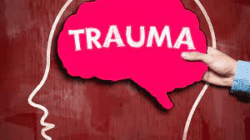Many people who experience a distressing or frightening event have strong physical and emotional reactions. These may include feelings of terror, helplessness or fear and physiological responses such as heart pounding, nausea, and loss of bowel or bladder control. People’s responses to trauma vary, and depend on a number of factors, including the intensity and duration of the traumatic event, the person’s natural resilience, support networks following the traumatic experience, any other stressors in their lives and their personality and mental health history.

All traumatic experiences create stress reactions and this is a normal part of the recovery process. It’s when symptoms continue over a prolonged period that a disorder called post-traumatic stress disorder (PTSD) might be occurring. When you need to know more about Trauma informed practice training, contact a site like https://www.tidaltraining.co.uk/mental-health-courses/

When you are feeling traumatised, you might feel like your world is not safe and places and situations you once felt safe in can suddenly become threatening or anxiety-provoking. It is also common to have distorted beliefs following a traumatic event, such as thinking that you are responsible for what happened or that anyone who looks at you could be dangerous.
It is important to remember that all these feelings are normal, but it’s also important to seek out the support of friends and family. Keeping in contact with them and establishing a regular schedule can help to restore some of the sense of stability that has been lost. It is also important not to isolate yourself after a distressing event as this can increase the severity of your symptoms.
